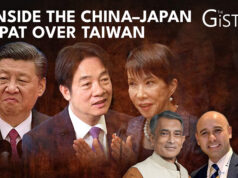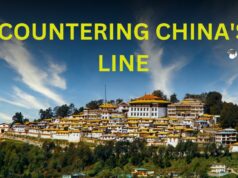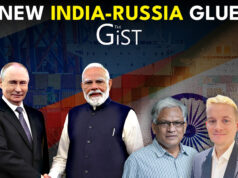NEW DELHI: At the inaugural ceremony of the two-week-long Pacific Games that began on Sunday at the Solomon Islands, sport seemed to be riding on geopolitics or it may well be the opposite.
The venue— a stadium built with Chinese money— stood tall as yet another testament to the growing influence of China in the archipelago located close to key sea lanes. Chinese funding for the sporting gala, commonly known as the Olympics of the Pacific, is an estimated $120 million, which is more than two-thirds of the total foreign aid.
Floodgates to the ‘ocean of opportunities’ for the Solomon Islands opened in 2019 after Prime Minister Manasseh Sogavare severed ties with Taiwan and re-established diplomatic relations with China. Both countries have also signed a security agreement based on which Chinese police stand guard at the sporting venues.
Locked in a power competition with the United States, as China invests heavily to exercise dominance over the Pacific island nations, the former as well as regional powers like Australia are worried.
Cleo Paskal, Senior Fellow at the Foundation for Defense of Democracies in Washington, DC, says what’s happening in Solomon Islands is an ironical contrast to what happened to David Panuelo, the former president of the Federated States of Micronesia, who dared to stand up to Chinese belligerence and paid dearly.
“He wrote three letters describing in detail Chinese political warfare in his country and how the Chinese were buying off members of his cabinet. He even offered to recognize Taiwan. That’s incredibly courageous. But he lost power, perhaps not coincidentally, and his family is being continuously harassed to this day,” Paskal told StratNews Global.
Despite being a country that has close ties with the U.S., the State Department did not back Panuelo, which meant that the Taiwanese didn’t want to move because they don’t want to annoy the State Department, rues Paskal.
It’s not surprising that when others look at what happened to Panuelo, they would ask “what’s the upside if I stand up to China? Whereas if I take Chinese money, nothing bad happens.”
Paskal advocates the need for a deterrence mechanism, sort of a carrot and stick approach, if things were to change. “Until we can say you take the Chinese money and you might end up in jail; you might end up not being able to get visas, that sort of stuff. But if you want to build your serenity in your country, we will back you and we will help your economy develop independent of that parasitic Chinese economic engagement.”
For now, Sogavare seems in no mood to change tack. At the inaugural ceremony of the games, he said: “Tonight we take the first step in telling our story to the whole world.” Those who know the back story need to hear no further.
Also See:




